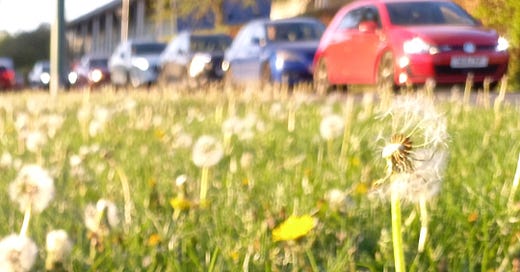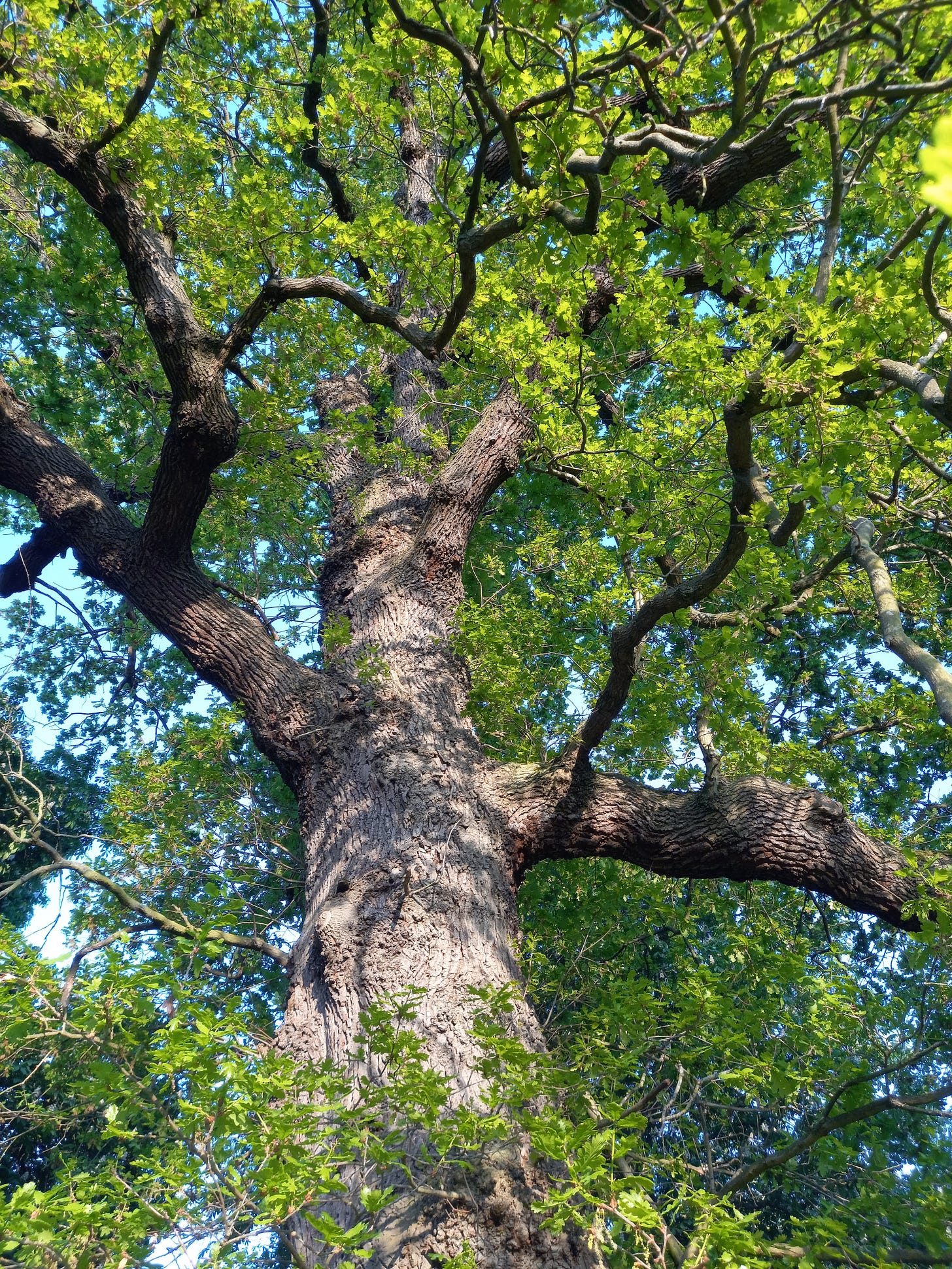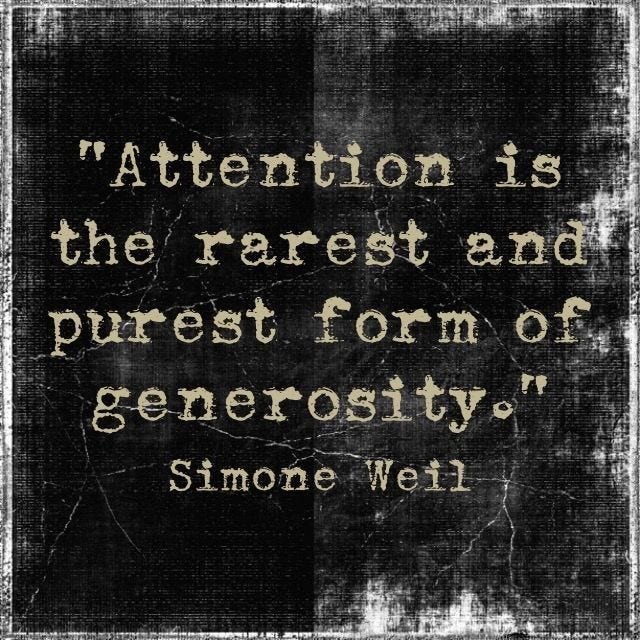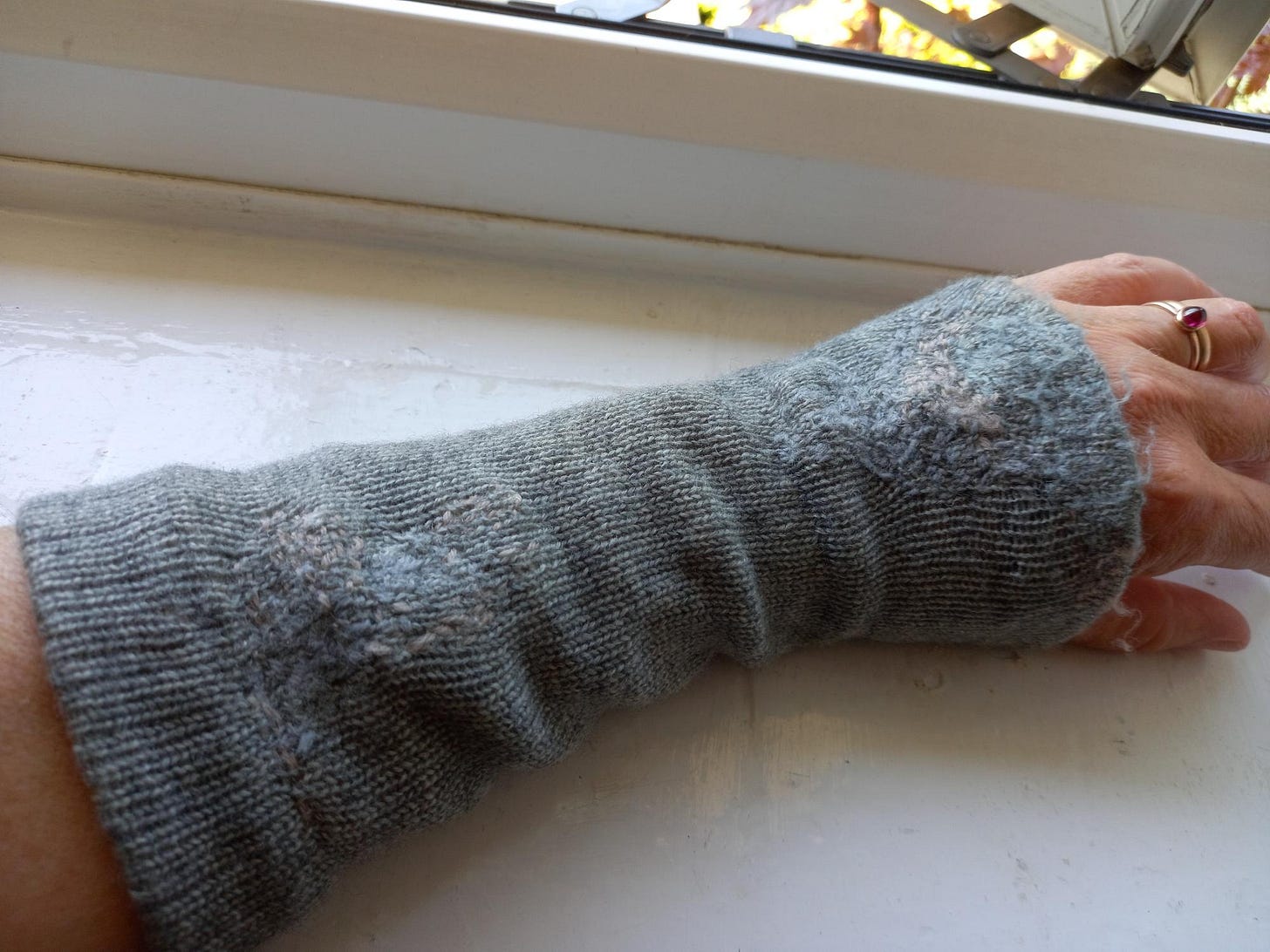Not long ago, I discovered a book called Zen in the Art of Writing by Ray Bradbury (the man who wrote Fahrenheit 451). This is his formula:
What do you want more than anything in the world?
What do you love and hate?
It’s been unseasonably warm here in Norfolk. I am always amazed by the size of the trees whenever I return. The bright, fresh green waves of spring never fail to astonish me, wherever I am. The university park is currently peppered with dandelions, shiny cobwebs, the air drenched with birdsong.
Last night there was some event on in the bowels of the brutalist concrete concert hall of the UEA. As I made my way home in the cooling heat of the day, lines of cars were queued up waiting to get into the car park. Most days I hear the depressing noise of planes flying overhead, some from Norwich airport, the louder ones from nearby army airbases. I love the dappled light and birdsong of spring, I hate driving, hot cars, motorways, traffic jams, diesel fumes. Each morning, around 4.10am, I hear the lonely sound of traffic begin to sigh on the city ring road. Metal boxes flying over tarmac in the gloom.
Yesterday a kindly native Polish speaker helped me translate an interview with Polish Gypsy Bronisława Wajs. Commonly known by her Romani name, Papusza was a Polish-Romani classic poet and singer. My translator and I sat together and watched Papusza speak about her culture, describing both her people, the forest, flowers, the wind and the river as family. She smiles as she speaks. She had a surprisingly child like demeanour (Papusza means ‘doll’ in Polish). Even though Papusza was old in years when this interview took place she doesn’t look old in the video. Her hair is still raven, her face smooth, only her hands look weathered. She gesticulates wildly as she speaks. She reminds me of my mum.
Considering what Papusza suffered at the hands of the Nazis and later her own people, Papusza emulates a kind of incomprehensible lightness and joy. She speaks with humility and gratitude about the kindness of strangers, partisans, and nature. She talks about the woods loving her, the forest flowers sewing her skirt,
‘Everything that lives in the wood are my brothers and sisters.’
The interview is juxtaposed with Papusza’s reciting several of her poems. Her words mingle with footage of Polish trees through the varying seasons; with meadow flowers trembling in the sunshine then frozen in frost.
Papusza’s poems are nostalgic. Lyrical and vivid they convey a solemn sadness, a yearning for a past life. They carry a depth of feeling, a kind of haunting which somehow feels universal. Her tone when she reads them is different to the childlike way in which she speaks to the interviewer. She sounds older, wiser, richer, more certain.
At one point my translator presses pause on the film. She points at the lace tablecloth draped over a box positioned between the interviewer and Papusza. She tells me about a town in Poland where you can see this kind of work,
‘people had time in those days to make these things’ she says, ‘now we have things but no time.’
We talk about how modern life has sped everything up. We remonstrate about crafts which are dying out. I ask her if she misses Poland. She says yes, sometimes.
Afterwards I show my translator an image of my late mother. The photo is of Mum driving Diamond, the reins held loosely in her hands, her dark face concentrating on the open road.
‘Oh, she had a wagon also!’
Yes.
We zoom in, observe Mum’s expression, her high cheekbones, her dark crescent eyes, her animals. My translator smiles up at me, rubbing the goosebumps on her forearm. I feel myself well up.
I love darning. It is one of my favourite things to do. I find it calming and satisfying. During the second lockdown, I became obsessed with darning a pair of ancient cashmere gloves. I admit I got excited when I saw another small hole appear in these delicate and rather useless things. I’d get out my granny’s needles, some grey wool, a darning mushroom and sit for hours repairing them. When lockdown ended, I showed them to my little sister,
‘Do you like my gloves? They’re cashmere!’ she glanced at the plethora of repairs, then grinned at me,
‘they were cashmere!’ we laughed.
I’ve cut the hands off those gloves now. I’ve hemmed the edges and turned them into wrist warmers (surprisingly useful when typing in the cold). I’m teaching several young people I’ve met at the university how to darn. This gives me joy. It also gives me a faint sense of hope.
What I want more than anything in the world is to help prevent the devastation man made climate change might cause to all of creation. I don’t know how to do this. I think we need hope. In her 2013 essay The Futures Market - The Stories we Tell about Times to Come, Margaret Atwood writes that in the near future we will all need to make an effort and that in order to make an effort we will need hope. At the end of her essay she wishes her readers hope. I want to echo that sentiment.








